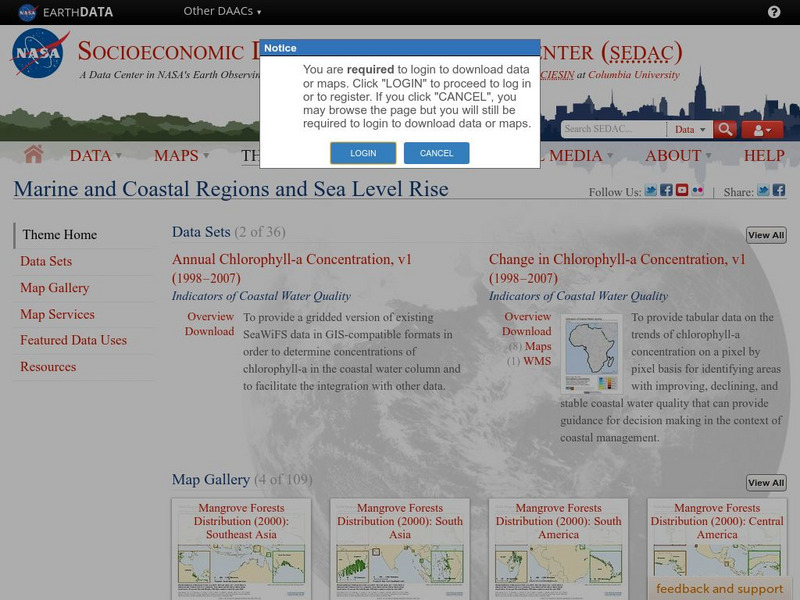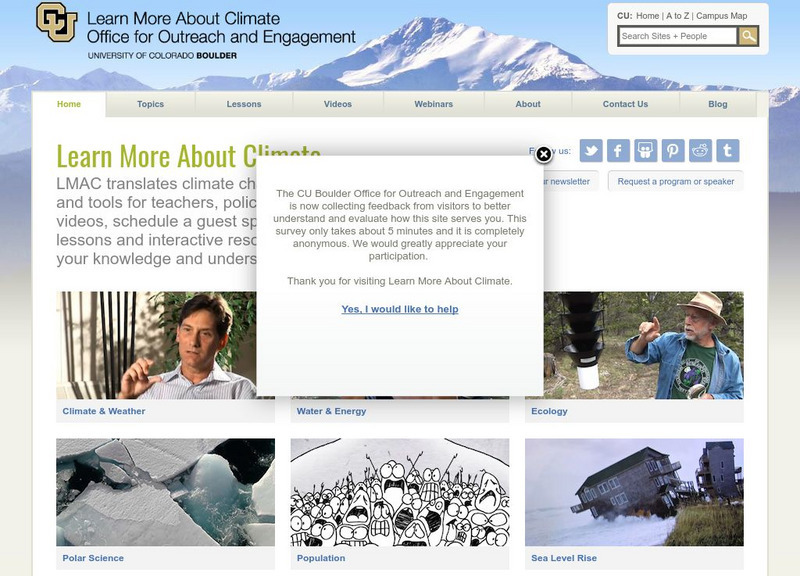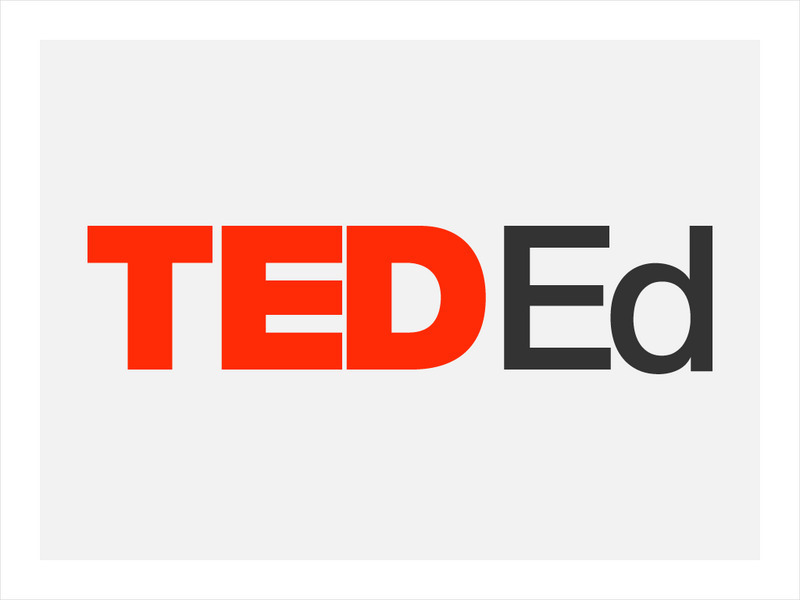Curated OER
Coral Bleaching in the Caribbean
Students use authentic satellite data on the NASA website to determine when the sea surface temperature meets the criteria to induce coral bleaching.
Curated OER
Environment Global Warming
Students study the causes and effects of global warming and the actions that can be take to improve the problem. They write action plans for making their school more environmentally friendly.
Curated OER
Interdisciplinary Global Warming
Ninth graders are given a wide variety of earth science topics to choose from to write a report on. This lesson also has a scoring rubric imbedded in the plan. They utilize the internet and other sources to complete their research.
Curated OER
Burp Under the Ice
Pupils examine the impact of climate warming on Arctic methane deposits. They identify natural methane processes and describe how this contributes to species extinction. They write reports on their findings.
Curated OER
Global Warming--Points of view
Pupils are introduced to global warming through analysis of political/editorial cartoons dealing with the subject. They discuss the cartoon and what the feel it means and then discuss the mechanics of and the concerns about global warming.
Curated OER
Glacial Change
Students research the ways in which scientists study glaciers and glacial change. They interpret real time data and calculate the estimated global sea level rise potential. A very good lesson to illustrate global warming.
Curated OER
Glacier Climbing
Students discuss glaciers and the current distribution of glaciers around the Earth. They create simulated glaciers using cornstarch, shoeboxes, water, and pebbles.
Curated OER
Is the Earth Warming? a Test of the Effect of Increased Carbon Dioxide on the Thermal Properties of Air
Pupils investigate the environmental and economic effects of increased carbon dioxide (CO2) content in the atmosphere.
Curated OER
Hurricanes
Students listen to a transcript of an interview about an upswing in hurricanes with Stanley Goldenberg, a researcher with the National Oceanographic and Atmospheric Administration. students participate in a series of discussion questions.
BBC
Bbc: Climate Change
Play this online game to see if you can persuade European nations to reduce their carbon emissions to help our global climate. You are the president, "the future is in your hands!" Archived.
Columbia University
Nasa: Sedac: Marine and Coastal Regions and Sea Level Rise
[Free Registration/Login Required] A collection of fifteen data sets from SEDAC (Socioeconomic Data and Applications Center) that examine the impact rising sea levels is having on marine and coastal regions. They look at mangrove...
Columbia University
Nasa: Sedac: Water Resources and Consumption
[Free Registration/Login Required] A collection of twenty-four data sets from SEDAC (Socioeconomic Data and Applications Center) that examine water resources and issues around the world. They look at dams and reservoirs, floods, drought,...
NOAA
Noaa: Following the Ocean Unicorn [Pdf]
Learn what a narwhal is and how climate change may be challenging their existence. Make a poster that demonstrates your understanding.
Georgia Department of Education
Ga Virtual Learning: Air, Atmosphere, and Climate Change
Sixteen essential questions lead student learning about Earth's atmosphere and global warming as they have to do with global climate change.
PBS
Pbs Learning Media: What's Up With the Weather: Graphs
Examine this graph from FRONTLINE/NOVA: "What's Up with the Weather?" Web site to see dramatic increases in three greenhouse gases over the last two hundred years.
Smithsonian Institution
Smithsonian Magazine: Eco Center: The Oceans
Students explore the potential problems and fascinating phenomena of the oceans. Some topics investigated are climate change, nutrient pollution, and fishing. The resource consists of a quiz, slideshows, articles, and video clips.
University of Colorado
University of Colorado: Learn More About Climate
An extensive source of information about climate change and how it is affecting Colorado. Includes videos of interviews with scientists, lesson plans, links to 'green resources' and to sites with scientific information, and a climate...
TED Talks
Ted: Ted Ed: James Balog: Time Lapse Proof of Extreme Ice Loss
In this video, James Balog describes how evidence for glaciers receding due to climate change can be seen through time-lapse photography. [19:20] Includes a brief quiz and a list of additional resources to explore.
TED Talks
Ted: Ted Ed: Lee Hotz: Inside an Antarctic Time Machine
In this video, Lee Hotz describes research into greenhouse gas emissions and global climate change taking place at the South Pole in Antarctica. [9:46] Includes a brief quiz and a list of additional resources to explore.
Woods Hole Oceanographic Institution
Polar Discovery: The Greenland Glacier Expedition: July 7 July 24, 2008
This polar expedition took place in 2008, but you can still experience the thrill of following these scientists as they engage in research studying the changes in Greenland's ice sheet. Meet the research team and learn about the...
Science Education Resource Center at Carleton College
Serc: Is Greenland Melting?
An activity where students monitor the thickness of ice sheets found in Greenland by looking at photographs, map views, and tabular data. During this activity, students will make a conclusion to whether the ice sheets are melting.
Smithsonian Institution
Smithsonian Learning Lab: Prehistoric Climate Change and Why It Matters Today
Introduce students to environmental issues by studying a time of rapid global warming that occurred 50 million years ago. Lessons, video segments and interactive activities will engage students as they learn about average annual...
Smithsonian Institution
Smithsonian Education: Idea Labs: Prehistoric Climate Change
Sort fossil leaves from 55 million years ago into groups with smooth or 'toothed' edges. Then, use a formula to calculate the percentage of each type and, from there, look at how high the temperature might have risen when global warming...
PBS
Pbs Learning Media: Greenland Mass Variation Since 2002
Scientists study ice sheets because they influence weather and climate, playing a role in atmospheric and ocean circulation. Ice sheets can also have huge impacts on global sea levels because they store so much water. Explore this...












![Noaa: Following the Ocean Unicorn [Pdf] Activity Noaa: Following the Ocean Unicorn [Pdf] Activity](https://static.lp.lexp.cloud/images/attachment_defaults/resource/large/FPO-knovation.png)







